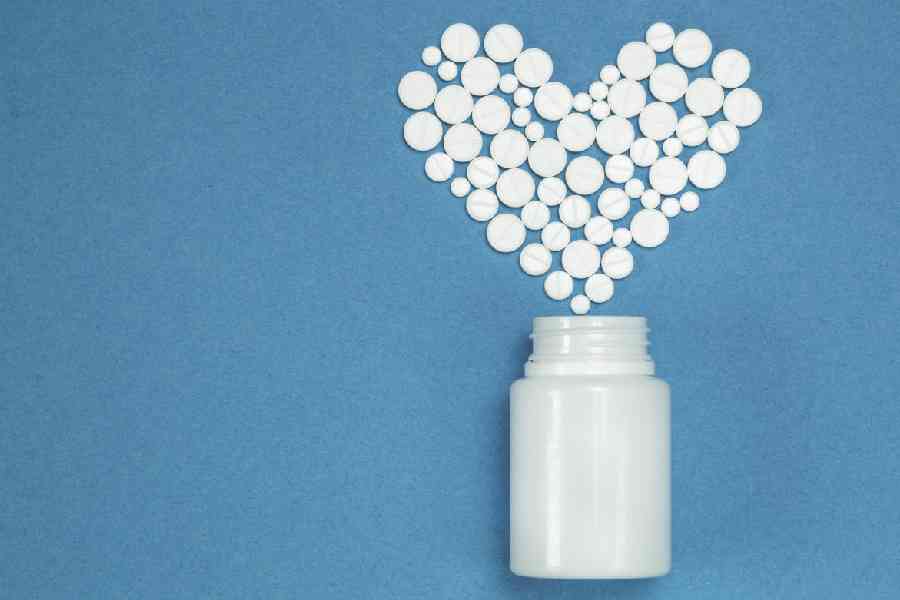Regina Griffith was 64 when she met her new primary care doctor for a routine check-up. He recommended a daily low-dose aspirin for heart health, she recalled.
It’s hard to be more fit than Griffith, owner and chief instructor at a fitness studio in Montclair, New Jersey, US. She had a slightly elevated blood pressure at the doctor’s office (but not at home, using her own cuff); other than that, she had no significant health problems.
Still, a daily aspirin didn’t seem like a big deal, and the doctor did not mention any downsides, so she took his advice. “I thought, ‘okay, I’m at a certain age’,” Griffith said.
Alan Turner, 64, an industrial designer in New Castle, Delaware, US, began taking aspirin on his own about five years ago, after his mother had several strokes. “I saw what that did to her,” he said. He had heard of other people his age taking prophylactic aspirin, so he “just went with it”, he said. “How much damage can you do with a baby aspirin a day?”
Good question. For three decades, the US Preventive Services Task Force, an independent and influential panel of experts, has been reviewing the growing evidence of aspirin use for preventing first heart attacks and strokes.
Recently, it issued its latest recommendations on aspirin use, the first in six years.
The panel warned adults older than 60 against starting an aspirin regimen for primary prevention.
“It carries possible serious harms” — notably, an increased risk of internal bleeding, said Dr John Wong, a task force member. “And those harms are higher than we thought in 2016.” Dr Wong is a primary care doctor and interim chief scientific officer at Tufts Medical Center in Boston in the US.
“Primary prevention” refers to patients who have never had a heart attack or stroke and do not have heart disease. (High blood pressure, or hypertension, is not considered heart disease.) That group is the task force’s focus.
People taking aspirin for secondary prevention — because they have already had a heart attack, stroke or intervention such as stenting or bypass surgery — face higher risk of subsequent cardiovascular events, and aspirin might remain part of their treatment.
For adults aged 40-59, the net benefit of taking aspirin daily would be small, the task force concluded. They may choose to start a daily aspirin regimen if, based on widely used health calculators, they face a 10 per cent or higher risk for cardiovascular disease over the next decade, but that should be an individual decision.
It will take time for these new cautions to trickle down to the public.
“Many people don’t even think of aspirin as medication, they think of it as more like a vitamin,” said Dr Amit Khera, director of preventive cardiology at the University of Texas Southwestern Medical Center in the US. “But just because it is over-the-counter, doesn’t mean it’s not a drug with benefits and risks.”
The US Preventive Services Task Force’s position on aspirin use for prevention has seesawed over the decades, noted Dr Allan Brett, an internist at the University of Colorado, US, in a JAMA editorial accompanying the new guidelines. The task force initially recommended in 1989 that patients consider aspirin, then backed off, calling the evidence insufficient. It encouraged preventive aspirin for many adults in 2009 but had grown more skeptical by 2016.
What has changed this time around? Three large, rigorous clinical trials published in 2018, following more than 47,000 older patients, “really highlighted the risks”, Dr Khera said.
Dr Wong added: “Two didn’t find any significant reductions in heart attack or stroke, but there was an increased risk of bleeding.” The third clinical trial, which was limited to people with diabetes, a higher-risk group, found a small reduction in cardiovascular events — but with a higher bleeding risk. “The harm cancelled out the benefit,” Dr Wong said.
The bleeding in question usually occurs in the gastrointestinal tract but can also include brain bleeds and haemorrhagic strokes. Although the risks are low — major bleeding occurred in one per cent or fewer of older people taking aspirin in the 2018 studies — they increase with age. “These are serious bleeds,” Brett said. “They can require transfusions. They can put people in the hospital.”
With the advent of other effective advances in preventing heart attacks and strokes — better blood pressure drugs, statins for lowering cholesterol, a reduction in smoking — the role for aspirin has narrowed, experts said.
For people older than 60, per the task force guidelines, or 70, per the cardiologists’ recommendations, the risks of starting aspirin now outweigh the benefits. This is particularly true for people with a historyof bleeding, say from ulcers or aneurysms, or those taking medications such as blood thinners, steroids or anti- inflammatories such as ibuprofen or naproxen.
Griffith, now 65, recently saw a different doctor in her new primary care practice. The doctor looked at her chart, which showed no heart disease and more than a year of aspirin use. “He said, ‘I don’t think you need to do that’,” she said.
NYTNS










